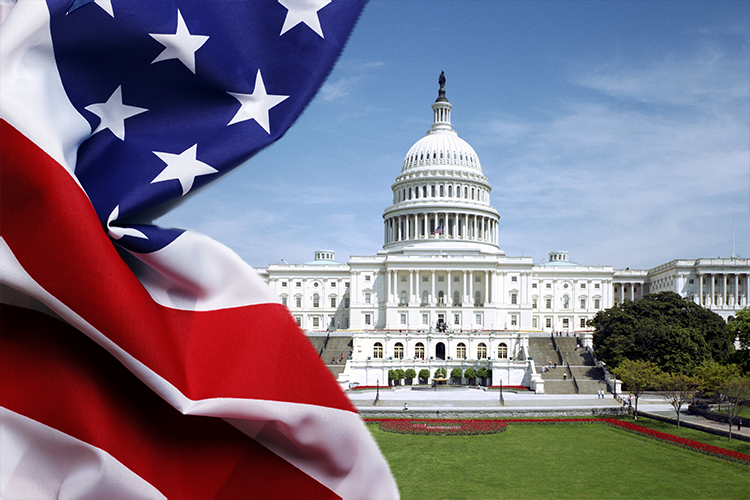The Democrats are refusing to follow the laws for handling absentee ballots that was finally resolved after numerous court cases and two U.S. Supreme Court decisions.
Friday, Oct. 30, U.S. District Court Judge Bill Osteen once again rebuked the North Carolina State Board of Elections (SBE) for not requiring two county boards of elections to obey the state law regarding absentee ballots.
The SBE and all 100 county boards of elections in the state have Democratic majorities, which means Republicans have little say in how election laws are interpreted or enforced.
However, Judge Osteen has been clear in his rulings that the state law requiring absentee ballots to be signed by one witness should be obeyed.
The ruling on Friday states, “It is inconceivable to this court that, after months of litigation, the SBE has implemented a cure procedure that fails to comply with the express requirements of state law. State law clearly requires that the country boards receive the printed name, address, and signature of the witness. N.C. Sess. Laws 2020-17 (H.B. 1169) S 1. (a).”
The issue is the witness signature on absentee ballots and, according to the ruling by Osteen, two county boards of elections are allowing absentee ballots to be counted without a legible witness signature or printed witness name and address.
The ruling states, “This court therefore finds as a fact that under the guidance and supervision of the SBE, county boards of elections are accepting and processing absentee ballots after providing notice and an opportunity to be heard, as well as a related cure procedure for ballots that do not include the statutorily required name or address of the witness – and in some circumstances, for ballots containing no information which might enable direct identification of the witness.”
The SBE tried earlier in the whole litigation process to count ballots that did not have the required witness information, and it was ordered by the courts that it could not do so. But according to this ruling by Osteen, the SBE is doing it anyway.
Osteen’s ruling after finding that the SBE is violating state law also notes that because of a Supreme Court ruling, “this court is prevented from ordering the SBE, a state actor, to conform with state law within the parameters of this case.”
So the ruling finds that the SBE is violating state law, but that the federal court is unable to do anything other than make note of that fact.


I’m shocked, shocked to find the (National Socialist) Democrat Party is blatantly violating a judges order. You’d think they have no regard for the rule of law and sincerely believe they can do anything they want to ensure they won an election.
Oh wait…they DO believe they are above the law and can do as they please and that the law only applies to us pesants and non-believers and they are operating on a mandate from their god, Almighty Soros, to become our final Lords and Masters.
As shocked as the president and his party blatantly refusing to follow the coronavirus safety requirements of wearing masks that their own task force mandated??????????
corona virus? what corona virus? The people dancing in the streets thinking Biden won do not care…CNN after the voters voted took down the death toll numbers and no one is talkng about something les lethal than the flu…the virus was a tool used to win an election
That is sad. Dems fixing the election cause they can’t win legally. They are so crooked I don’t understand how anyone can vote for them.
But according to the news media, there is no evidence that voting rules or voting fraud has in the past, is currently, or will in the future take place in the US.
Crooked Democrats will do ANYTHING to win this election. Lie, cheat, steal. I will never again vote for a Democrat in any election. (
Yup! He did it, but all we can do is say WE KNOW HE DID IT!
Sounds Familiar
I’ve never understood why our vote-counting process is so politically partisan? Shouldn’t it just be a 50/50 thing across the board?
We’ve got 2 major political parties. The vote counters should be made up of a 50/50 staff from DNC and RNC for each election. How can it ever hope to be anything but a fiasco when only one side gets to control and staff the actual vote counting process?
I confess, I’m ignorant of the laws, but I’ll learn more…
I think it’s just sickining that the Dems. feel tue need to cheat every single voting period. They need to get some respect and start playing there cards the right way. Stop teaching our youngsters how to lie steal and cheat.
Trump said it was fixed months ago. We are just doing our part!
Alan, you are a POS communist! You just admitted it! Unless you’re completely ignorant,which since you voted for quid pro joe you obviously are, you can clearly see the cheating going on! Winners don’t cheat and losers never win. America is the real loser here… Donald Trump fights for ALL Americans joe Biden and korrupt Karmela with fight for more corruption and stealing the tax payers money to make themselves wealthy while you idiots will make the tax payers poorer! And they call the Republican Party the stupid party… I think we all know stupid traded the elephant in for a donkey/jackass! Just know this commie… it ain’t over and won’t be for a long long time! Get your gear on…the law is coming for justice… Democrats krytonite… justice. Commie!
LAW? What is that? Different laws for different people!!!!